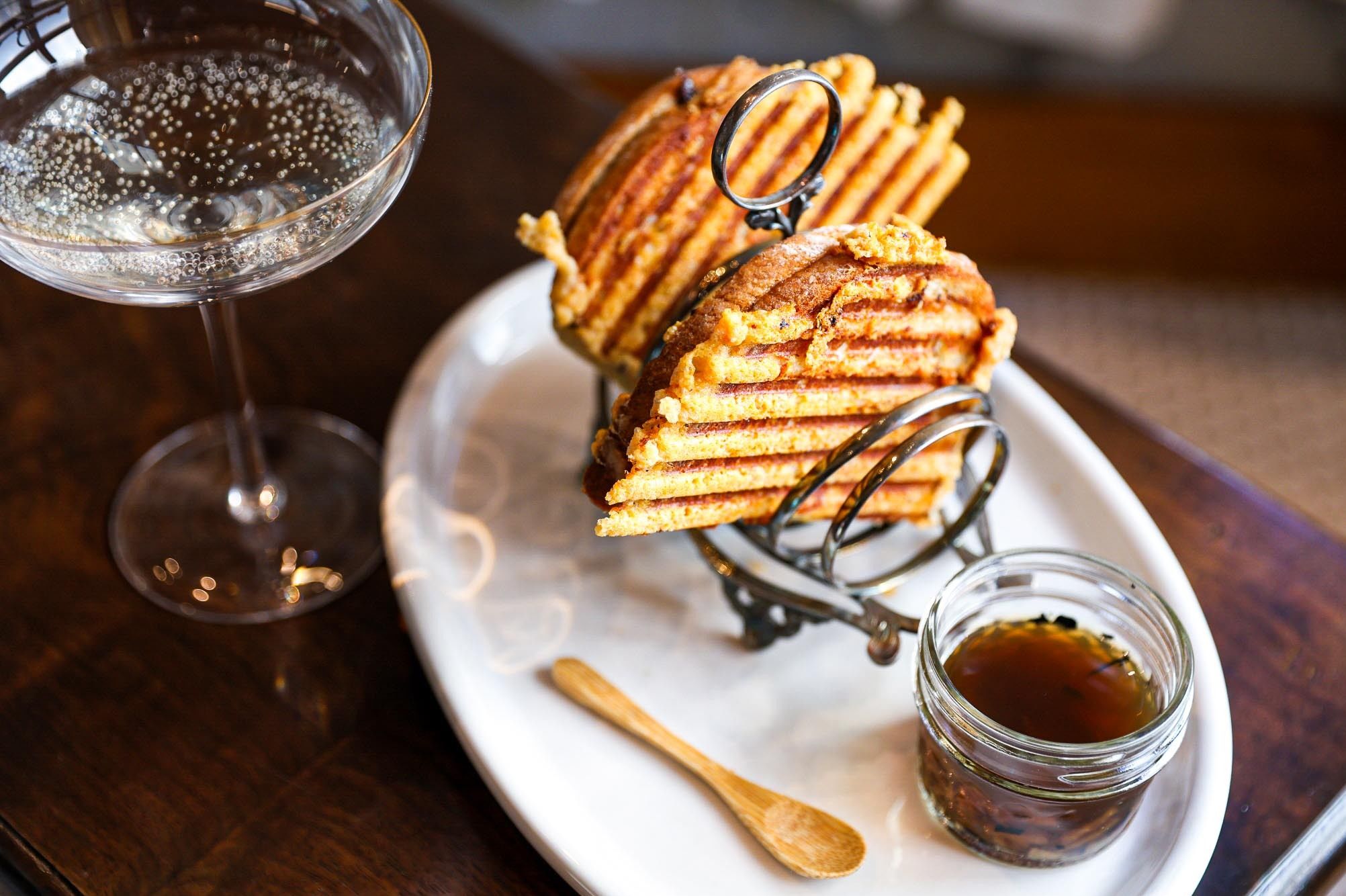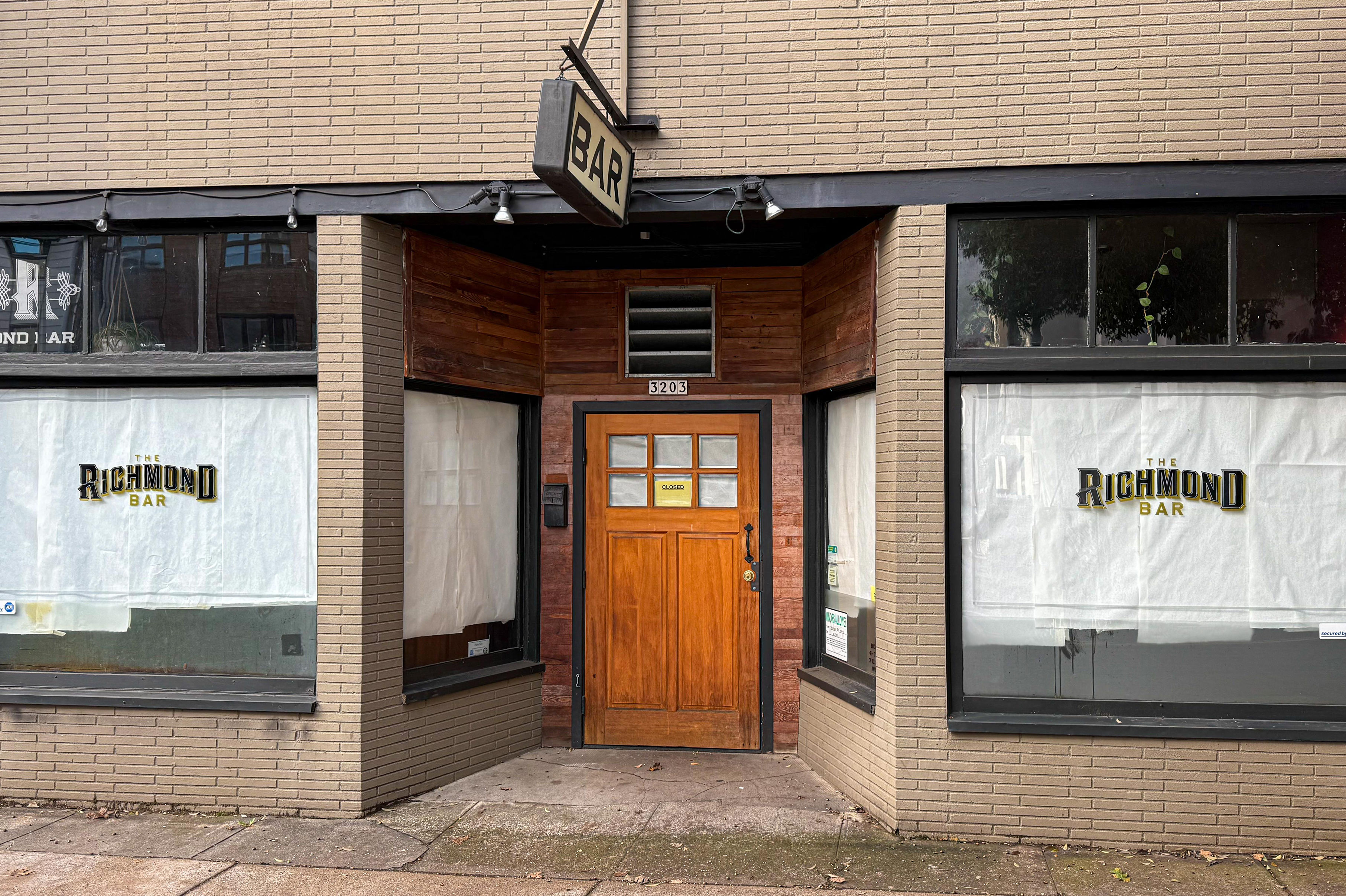Piccone’s Corner Opens on Sandy Blvd
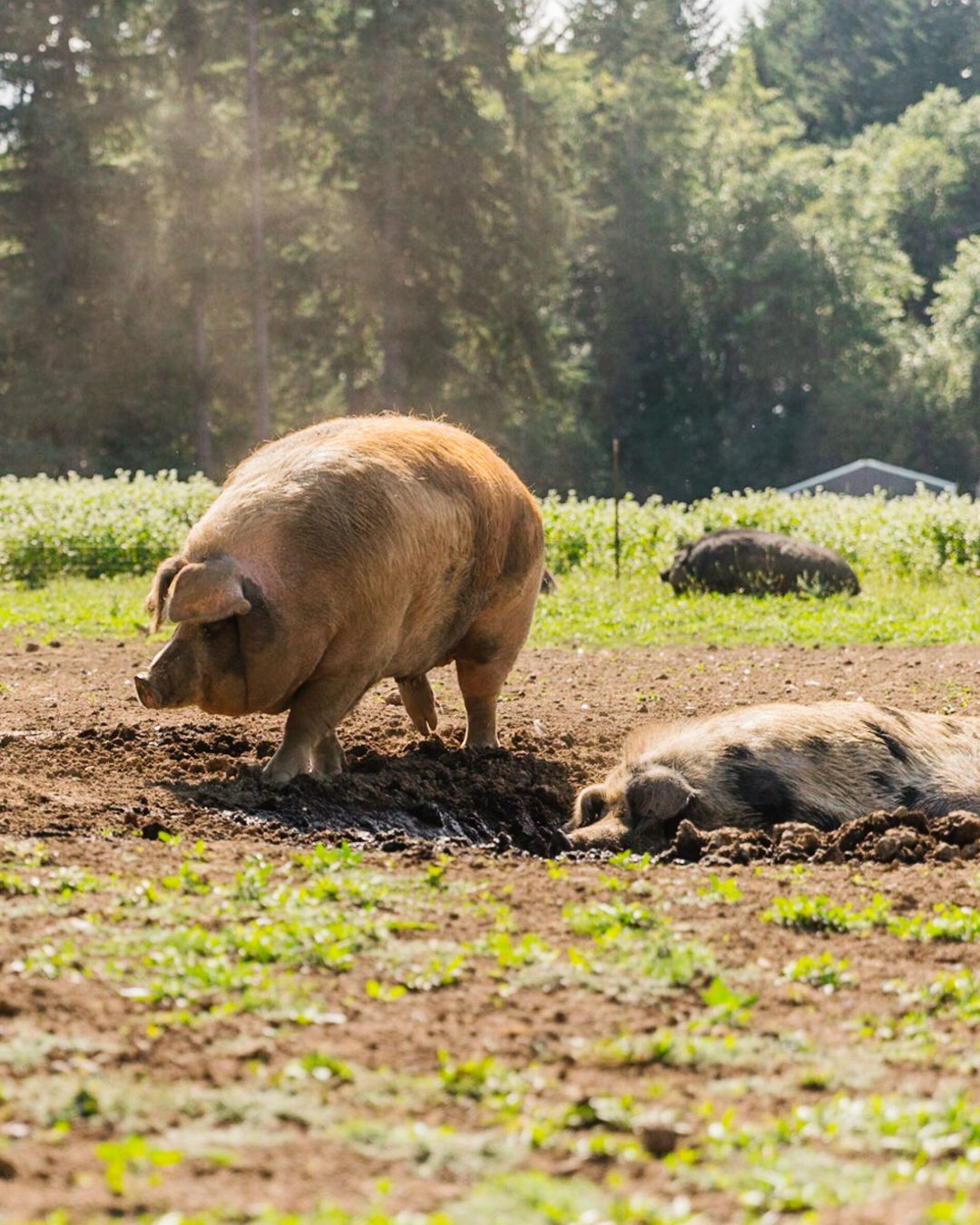
Wallow & Root Farm specializes in hybrid heritage pigs.
Simply mention heritage pigs to pig farmer Austin Piccone and you’ll get a run-down on trends in pig breeds over the last century, from Red Wattles to American Mulefoots. Bring up diverse livestock farming and you’ll get fun facts about how elephants’ feet create micro-ecosystems when they tread on soil in the African savanna, or how a decline in the American bison population led to the Dust Bowl disaster.
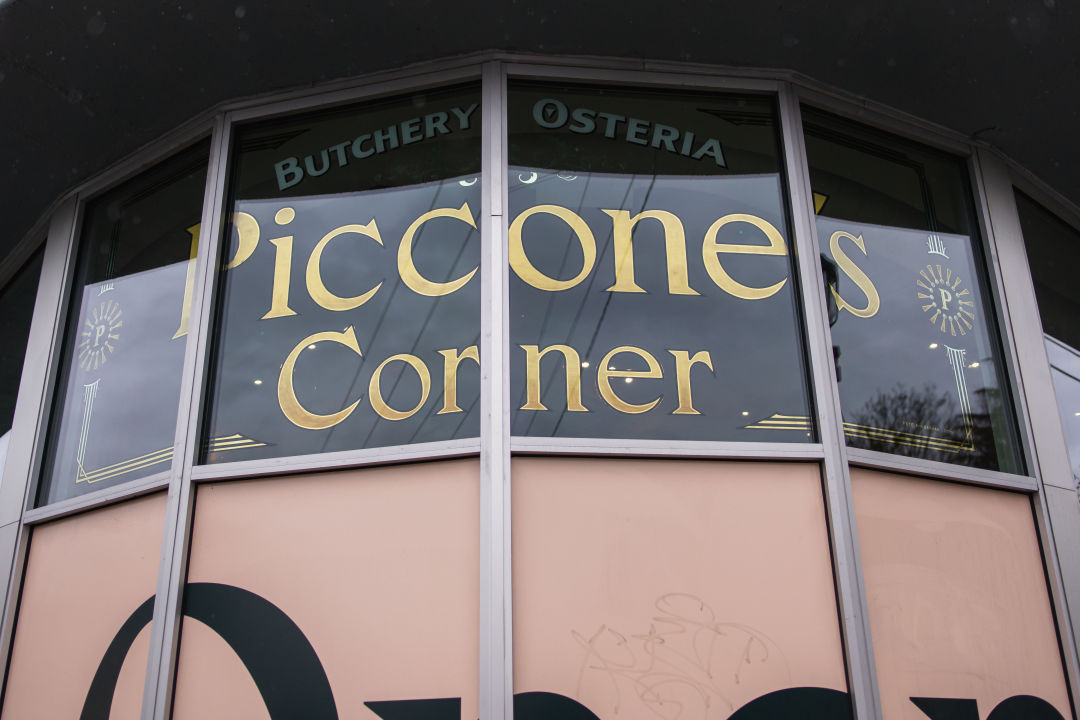
Piccone's Corner, a butcher shop, salumeria, and restaurant, opens on Sandy Blvd on February 4.
Image: Courtesy Josh Chang
Piccone is clearly passionate about farming premium pork on a small scale using more ecologically friendly and ethical methods. Starting February 4, for the first time, his pork and lamb, alongside steak and poultry from other local small farms, will be available to home cooks at his new butcher shop and restaurant, Piccone’s Corner, located at 3434 NE Sandy Blvd. The project was originally slated to open in April 2020, but was delayed by the pandemic. The restaurant side of Piccone’s offers lunch and dinner, and housemade salumi is coming soon.
Boutique butcher shops are nothing new in town, but what sets Piccone’s apart is that the pork goes directly from the farmer to the consumer.
For the past five years, Piccone—a college biology major who started off doing what he calls “backyard Portland-style urban farming” like keeping chickens—has specialized in raising pigs on his farm in Sandy called Wallow & Root. Prior to the opening of his butcher shop, customers could only buy his farm’s pork through what’s called custom-exempt slaughter, meaning that a customer commits to a huge quantity—like a quarter or half of a pig—for personal consumption. Some small-scale farmers do sell small quantities of meat directly to consumers at farmers’ markets, but as far as brick-and-mortars go, it’s rare for customers to find meat sold by the farmers themselves.
At Providore, for instance, home cooks can buy meat from Canby’s Revel Meat Co., a slaughterhouse, meat processor, and wholesaler that processes meat from multiple small farms. Portland-based meat wholesaler Nicky USA, which supplies many local restaurants, has its own house label of meat raised on its own farm, but the rest of its supply comes from a myriad of small farms. Many restaurants tend to buy from wholesalers who can sell them particular cuts of meat, or from larger farms that can sell a portion of an animal, rather than directly from small farmers because doing so would typically require them to purchase a whole pig or cow. That’s something many restaurants can’t afford to do and can’t sell quickly enough, especially with business slowed down due to COVID. “The people who we're working with, the small farms, they're not the farms that you see on, or have been seeing, on Portland menus before,” explains Anna Josephsen, Piccone’s director of operations.
Wallow & Root Farm specializes in hybrid pigs raised on open pasture and bred from heritage lines, including Red Wattle, American Mulefoot, Duroc, Gloucester Old Spot, Berkshire, and Hampshire. Those pigs are raised alongside other animals, such as chickens and lamb, in order to maintain healthier soil and create what Piccone refers to as a more closed-loop ecosystem.
In recent years, there’s been a resurgence of interest in these older breeds, which have a much different appearance and flavor than your typical supermarket pork chop. “The meat tends to be richer, darker, more of a red meat, and that adds a different flavor quality and eating quality,” Piccone says. The previous decline of those breeds into near extinction, he explains, was due to the low-fat trend of the latter part of the 20th century, which peaked in the ’90s.
“Pork was categorized as a less healthy meat. And as you’re getting toward the later part of the 20th century, there was more concern about consuming fat, about consuming red meat. Pork farmers started to breed for much more intense leanness, and that’s where the idea of pork being a white meat [came from]. They actually bred for that and bred the color out of the meat to try to appeal to a market that didn’t want to eat fat.”
Instead of heritage breeds, the Yorkshire breed, the pink pigs that we usually think of when we think about pigs, became more popular. Not only was their meat lower in fat and lighter in color, but they could also be raised more efficiently. “They were bred for a more high production, high concentration, monoculture type of farming operation. They’re raised in buildings,” Piccone says. “They really do maximize production efficiency on some level, but they also have other issues, like they're more susceptible to parasites and viruses.”
Keeping heritage breeds alive means that there’s more genetic diversity in the pig population. That’s important for food system security, Piccone says.
“It's not just about tradition or something like that. It's about maintaining livestock biodiversity, and in keeping all these different genetics that exist alive so that it can be used depending on our needs. There's a vulnerability to an agriculture system that's dependent on monocultures. That's a big part of the heritage push.”
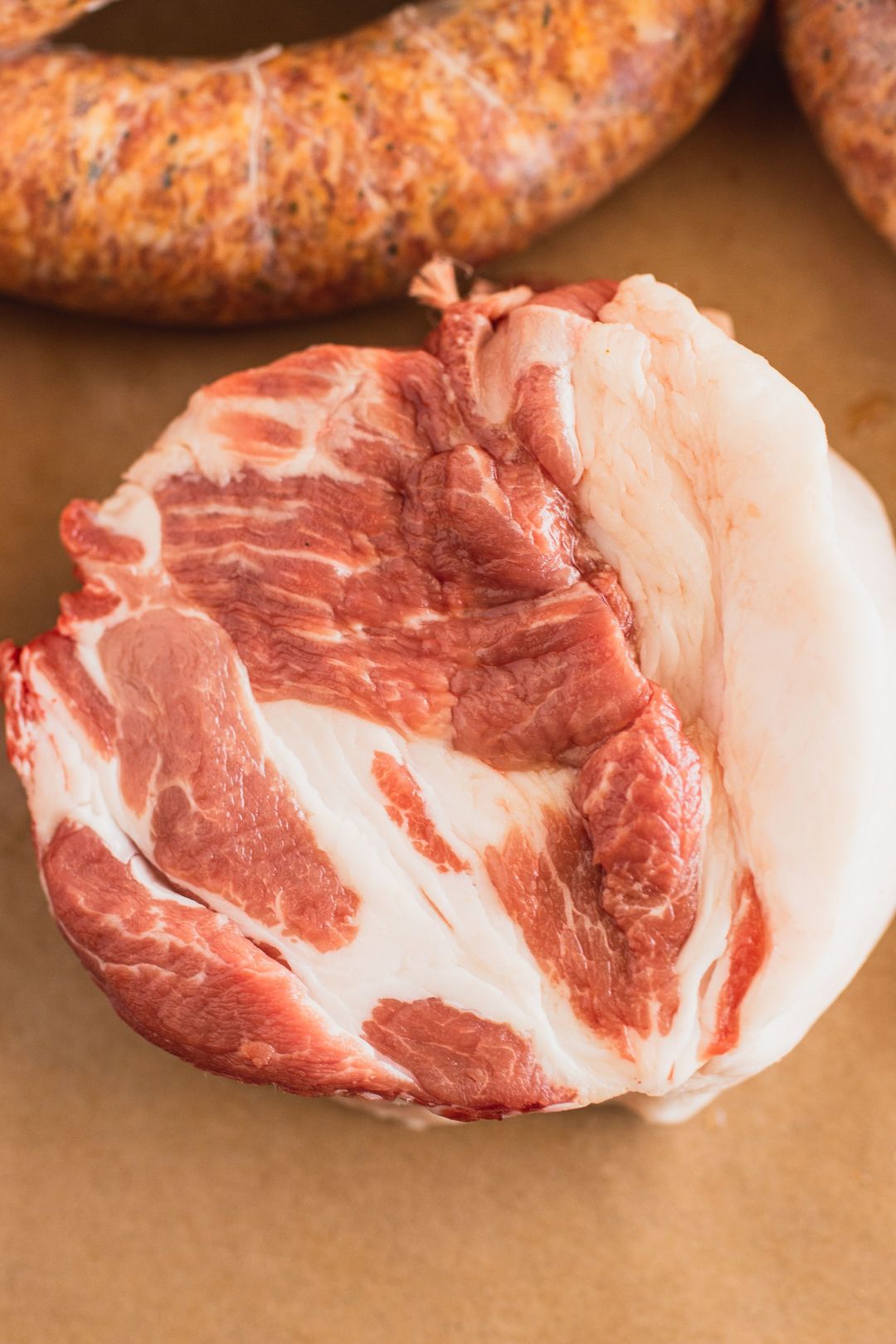
Wallow & Root pork chops and sausage will be sold directly to home cooks for the first time.
Image: Courtesy Josh Chang
At Piccone’s Corner, whole pigs weighing as much as 600 pounds (commercial pigs tend to clock in at about 250) get delivered straight from the slaughterhouse in a refrigerated truck, then butchered in-house into all kinds of cuts imaginable. If you’ve been seeking out an obscure cut of pork for a recipe, Piccone’s can even do custom cuts with advance notice. Housemade sausage will also be on offer. Soon, the house salumi program will be up and running. Piccone has studied salumi-making on trips to the Southern Italian region of Calabria, the region that his family emigrated from three generations ago. Head butcher Shadow CdeBaca, formerly of Tails & Trotters, and assistant butcher Noah Grobart, formerly of Revel Meat Co and now-closed whole animal butchery Old Salt, also bring expertise in butchery and salumi-making. The shop will also include a retail area complete with housemade pasta and sauces, local bread, coffee beans, and pantry items.
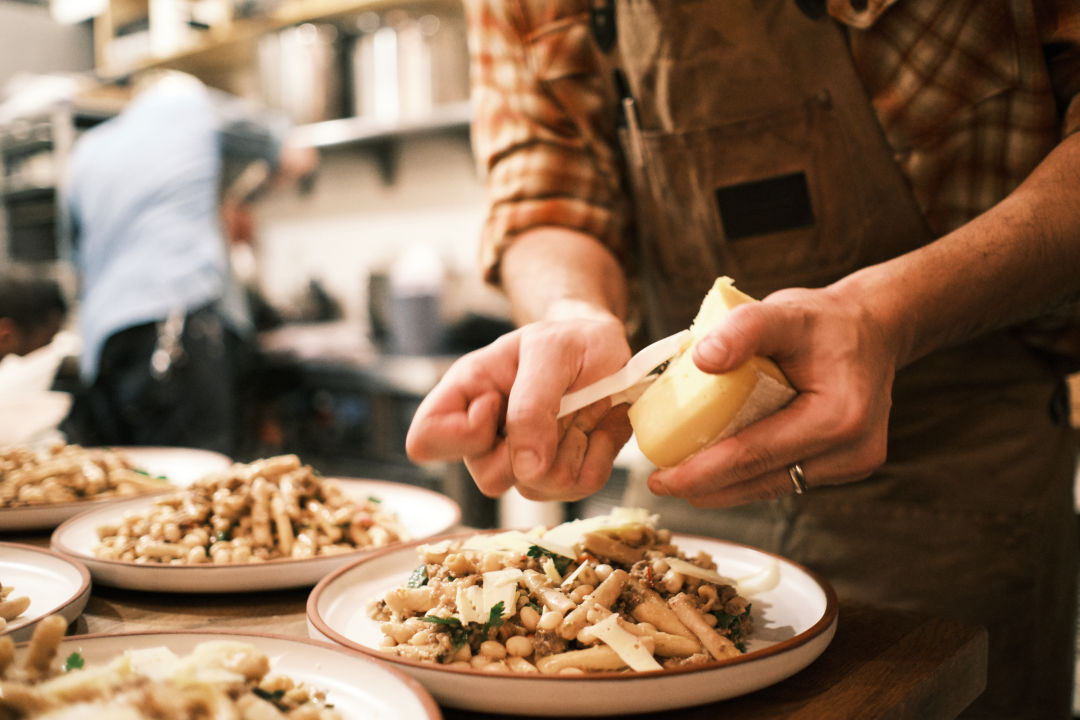
Pasta is on offer alongside meats cooked over an open fire.
Image: Courtesy Josh Chang
Meanwhile, the kitchen is headed by Nic Maraziti, whose resume includes Bar Casa Vale, Ava Gene’s, The Bent Brick, and open-fire cooking restaurant Tournant. At Piccone’s Corner, he’s bringing those open-fire techniques into the kitchen. During lunch, he’ll be searing Italian sausages on a roll as well as wild mushroom and fontina dip sandwiches for vegetarians. At dinner time, steaks, chicken, and Italian mixed grill will sizzle to a juicy crisp. The menu also includes an anchovy-laden Caesar salad, Southern Italian-inspired arancini stuffed with pork shank, housemade pasta like agnolotti with whipped n’duja sausage, and sides like garlic bread pudding and Ayers Creek polenta. One day, the restaurant will boast a full bar, as well as indoor banquette and table seating, but for now, all food is takeout only. All meats on the menu, of course, will come from Wallow & Root and the other small farms they work with.
“There's a lot of problems with the agriculture system the way it is—and especially as climate change becomes a bigger and bigger concern,” Piccone says. “There’s changes that have to be made to the way we farm [and] the way we think about our food networks. ...And that’s where the intention and the spirit of the project reside.”
